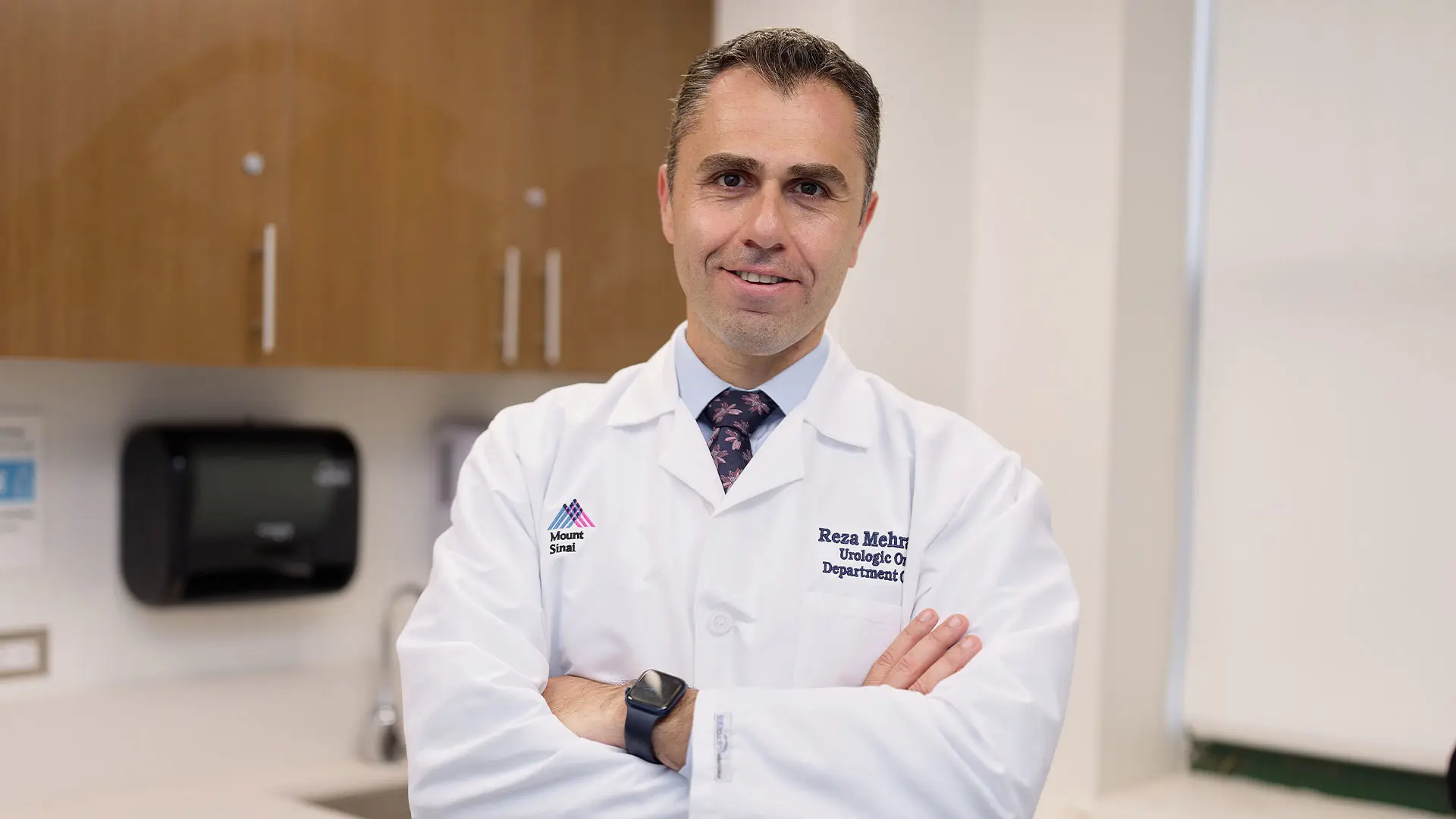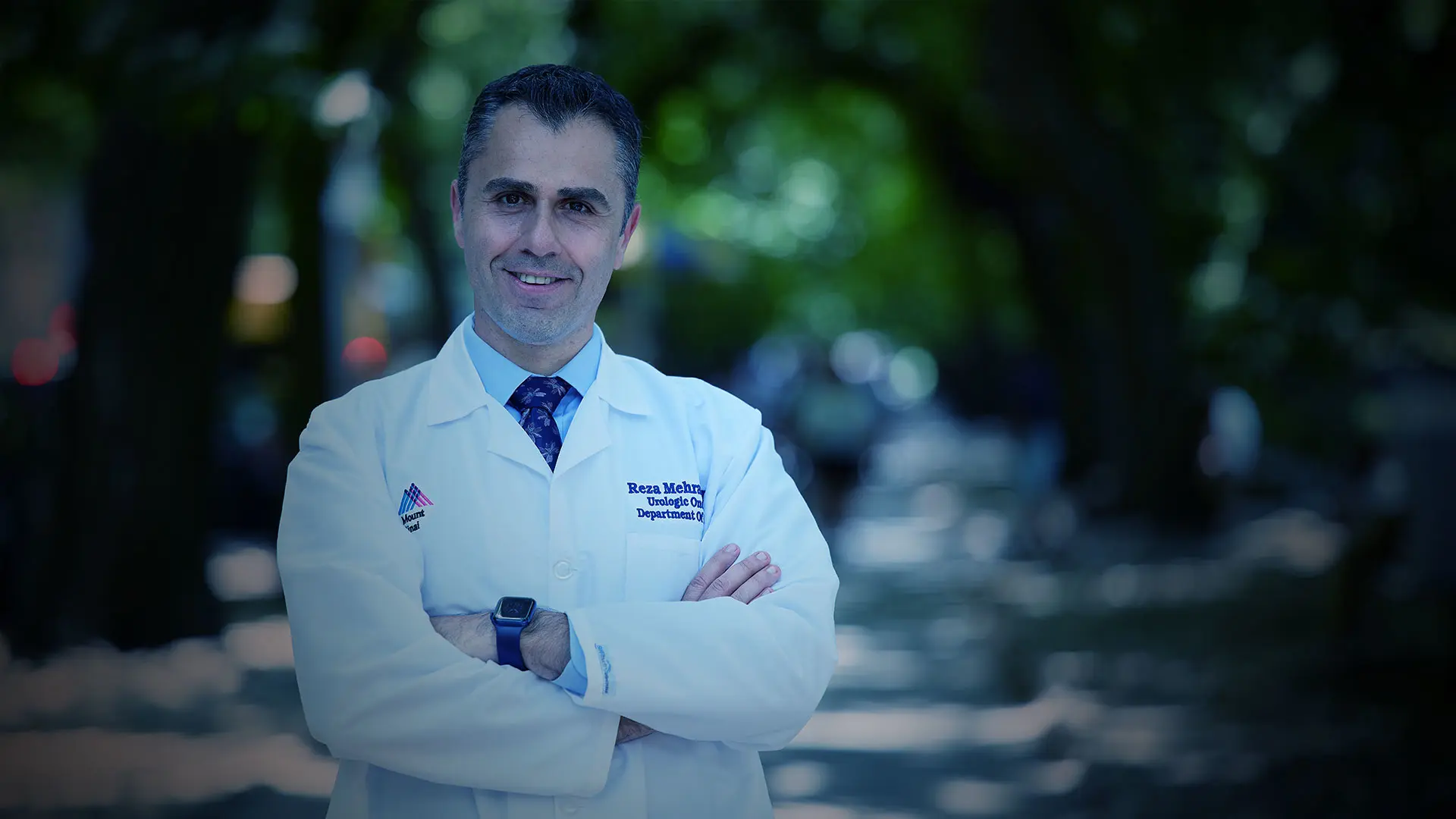When Mount Sinai’s Department of Urology announced the launch of its new urologic oncology program, applications started coming in from across the country and around the world.
The program’s director, Reza Mehrazin, MD, had anticipated this. For one, the Society of Urologic Oncology’s rigorous approval process has resulted in a relative scarcity of fellowship programs nationwide. But Dr. Mehrazin and his departmental urologic oncology colleagues have long fielded questions from trainees as to when Mount Sinai would develop its own program based on its strengths in this field.
“We have a very high volume of surgeries, we have one of the largest residency programs in the country, and we have internationally recognized leaders in different aspects of urology,” says Dr. Mehrazin, Associate Professor of Urology at the Icahn School of Medicine at Mount Sinai. “We saw an opportunity to share our extensive knowledge and skills with trainees so that they can go back to the centers where they work or like to live and offer the same services to their patients with the same degree of excellence.”

“We want to teach the next generation of urologic oncologists what we do here so that they not only reflect that capability and capacity, but also share what they have learned,” says Reza Mehrazin, MD.
The fully accredited, comprehensive two-year program has an equal focus on developing clinical and research skills. During the clinical year, trainees will perform open and robotic surgeries for treatment of bladder cancer (with intracorporeal urinary diversions), renal cell carcinoma, upper tract urothelial carcinoma, prostate cancer, testis cancer, penile cancer, genitourinary (GU) sarcomas, and other rare GU cancers. During the research year, trainees will conduct basic science and/or clinical research with the expectation that they will be able to generate and submit original research for presentation and publication. Fellows will have access to funded laboratories, projects, and resources to meet that objective.
“Fellows need experience in both research and surgeries to become outstanding urologic oncologists,” Dr. Mehrazin says. “We will train them in producing pure academic work that advances the field. We also offer them an unparalleled diversity and volume of surgical cases for their training. That will give them a solid grounding in how to do these procedures effectively and successfully.”
The first fellow was selected in July 2023 and is focusing on research training. A second fellow will begin clinical training in July 2024. Appointments are made based on a range of criteria. They include the applicant’s curriculum vitae, publications, recommendation letters, and goals.
“Experience is crucial, but we are also taking other factors into consideration,” Dr. Mehrazin says. “We are looking at who they are as a person and whether they demonstrate an interest in being future leaders in the field.”
The goal is to expand the program to accept two fellows each year. Given the department’s growth, Dr. Mehrazin believes that is possible. He says the more fellows the department trains, the more they can help address the scarcity of urologic oncology fellowship opportunities, both nationwide and internationally.
“We want to teach the next generation of urologic oncologists what we do here so that they not only reflect that capability and capacity, but also share what they have learned,” Dr. Mehrazin says. "That will translate into growth for our department and our Society of Urologic Oncology Program.”
